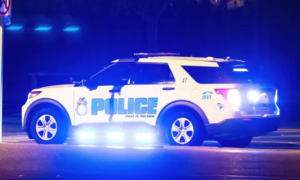South Africans across the political spectrum expressed fury and embarrassment after President Cyril Ramaphosa’s White House meeting with Donald Trump devolved into a one-sided debate over debunked “white genocide” conspiracy theories—derailing discussions on trade, investment, and bilateral relations.
Key Takeaways from the Controversial Meeting
- Trump dominated talks with false claims of white farmer persecution
- Ramaphosa’s delegation included white business leaders to showcase unity
- No progress made on restoring canceled U.S. aid or mending relations
- South African public questions whether the trip was worth the humiliation
How the Meeting Unfolded: A Breakdown

What Ramaphosa Hoped to Achieve
✅ Reset strained U.S.-South Africa relations
✅ Secure renewed economic partnerships
✅ Address Trump’s previous hostility (canceled aid, expelled ambassador)
What Actually Happened
🔴 Trump played propaganda videos alleging white farmer killings
🔴 Pushed articles from far-right sources as “evidence”
🔴 Ignored prepared talking points on trade and development
“He didn’t get Zelenskyed, but he got Trumped—forced to sit through a lecture based on internet myths.”
— Rebecca Davis, Daily Maverick
The “White Genocide” Myth: Facts vs. Fiction

What the Data Shows
📊 White farmers murdered since 1990: ~1,363 (40/year avg)
📊 Total South African murders/year: ~20,000 (mostly Black victims)
📊 White land ownership: Still controls 75% of private farmland
Who’s Pushing the Narrative?
- Far-right groups (TLU-SA, AfriForum)
- U.S. conservative media (Fox News, Breitbart)
- Elon Musk (amplified claims to 180M+ followers)
“This is a deliberate misinformation campaign that’s been brewing for years in right-wing echo chambers.”
— Pieter du Toit, investigative journalist
South Africa’s Reaction: Anger and Disbelief
Public Outcry
- “Why must we beg for respect?” – Johannesburg protester
- “Trump only cares about white South Africans, not the 92% Black majority.” – Political analyst
Business Leaders Frustrated
Johann Rupert (Richemont billionaire, meeting attendee):
“Crime affects everyone. Focusing only on white victims distorts reality.”
The Bigger Picture: Why This Matters
Diplomatic Fallout
- U.S.-South Africa relations at lowest point since apartheid
- African Union may reconsider engagement with Trump administration
Global Far-Right Strategy
- Weaponizing isolated incidents to push racial polarization
- Exporting U.S. culture wars to other nations
What Happens Next?
Short-Term Impacts
- Ramaphosa’s approval drops among Black voters
- White far-right groups emboldened internationally
Long-Term Consequences
- Potential economic retaliation from South Africa (e.g., BRICS alliances)
- Global south nations increasingly distrustful of U.S. leadership




